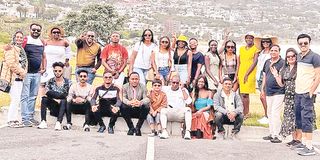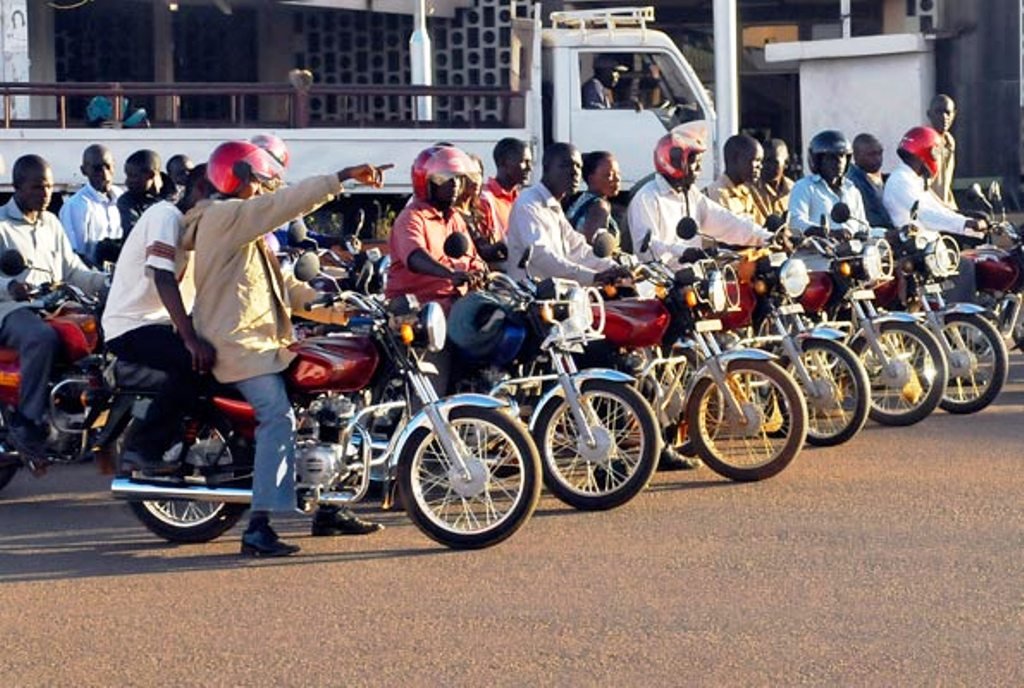Msabaa: How young Tanzanians can use vacation in Europe to grow and network

An ambitious group of young men posing together. PHOTO | COURTESY
What you need to know:
- Tourism has become one of the best ways to explore the world, not only as tourists but also as professionals seeking growth and networking opportunities
‘Read ten thousand books, travel ten thousand miles.’ While flipping pages of a book enables you to travel the world and experience the dynamics of diverse cultures, it is only through the actual journey to these places that will open your eyes to the colours of life, smell the flowers, hear the laughter, and all of a sudden everything you read about comes to life.
And increasingly, young Tanzanians are crossing borders and oceans just to have a moment of tranquillity and rejuvenation.
Stephen Msabaa and Aziz Ngasa are young Tanzanians who have carved a niche in the tourism business.
Their ‘Take a Hike Bongo Travel’ tour company specialises in group travels in Tanzania.
Targeting the working-class people, they organise these trips mostly around public holidays; they recently had one on Karume Day, visiting Materuni, the picturesque location in the Kilimanjaro region known for its breathtaking waterfalls.
Around the Eid celebration, they visited Tarangire National Park. These tailor-made tours cater to employees who would otherwise not have time throughout the year to go on vacation. One of their niches is also organising overseas vacations.
Domestic tourism is on the rise, and the appetite for Serengeti National Park, Ngorongoro, and other major tourist attractions remains high.
Nevertheless, they found out that Tanzanians and other East Africans yearn to explore the world; famous destinations are Dubai, South Africa, and Thailand.
The trips to Cape Town, Egypt, and Italy are already scheduled. When asked if young Tanzanians travel in times when everyone seems to be saving every shilling they get, Stephen said that is exactly what they are saving for.
Their huge clientele is young Tanzanian women; they would have for months just to have a group vacation, and with the looming trip to Italy this December, financially stable young ladies have started booking a slot to explore the rich history, exceptional cuisine, and immaculate fashion and culture of Italy.
The cost of not more than $2000 seems an undercharge for a one-week vacation in Italy, where they get to see Rome, Venice, and other locations across the country, but Stephen hinted that the key to affordable travel is always a group vacation.
In a group, the cost is always minimised, and there is so much benefit to travelling with strangers who turn out to be lifelong friends.
The beauty of being on an adventure in a foreign country with other Tanzanians that you don’t know is that you end up connecting with them.
He has witnessed travel mates turning into business partners after the travel. Some of the young Tanzanians who visit Europe or South Africa come back with business ideas they pick up as they stroll down the streets admiring sceneries. “There is so much more to travel than simply vacation,” he said.
Mr Stephen grew up surrounded by Swahili culture. He went to school in Mombasa, the coastal city in Kenya with a significant maritime history and an ancient trade hub; the Swahili city has so many similarities to Zanzibar Island, a place that Stephen loves to frequent.
Travel among young Tanzanians is on the rise, spurred by the Instagram vacation posts that motivate youth to buy that plane ticket, if not for anything else but for the picture moment.
Regardless of the reason, this has stimulated the country’s economy, making tourism one of the sectors that contributes the most to the country’s coffers.
Travelling to Europe as an African is not without its challenges; Europe has faced the mounting challenge of African illegal migration to their nations.
This has not gone unnoticed while booking tickets for Tanzanians planning to vacation there.
Stephen and his partner, who are in charge of arranging all itineraries, including securing visas for their clients, said, “If a person doesn’t come back after visiting Europe, they will risk having your company blacklisted, so we take all precautions.”
Due diligence is a must for them; sometimes they have to turn down money paid by a potential client if they are suspicious of the individual and the possibility of their return back to Tanzania once the one week has elapsed.
Most of their clients are Tanzanians with reputable lives, stable jobs, and reasons to come back home. These are Tanzanians who have no desire to stay longer than necessary.
The embassies do their part to confirm who the traveller is, and in some cases, they would require some documentation, which Stephen has to ensure the clients have.
When all the visa phases are accomplished, the fun begins, and the adventure for these young Tanzanians experiencing other cultures is such a thrill and eye-opener.
One gets to see the world out there, far away from the life one is used to. Stepping away from the norm does something to the human brain; it is refreshing to the body and soul. Life is for the living.
Travel is a body- and mind-changing phenomenon; the mind of a traveller is different from those who do not.
We see it in the eyes of tourists who come to Tanzania: the love and hospitality they see in our country is something that sticks with them forever.
The positive cultural shock is heart-warming, and in many cases, it leaves a lasting impression, more than all the wild animals they get to see in the national parks.
Similarly, Tanzanians are astounded by what they see during their trips to developed countries. “One of our biggest malls is Mlimani City Mall in Dar es Salaam, but if you go to a place like Cape Town, there are ’villages of malls’.
You can walk through these malls for the whole day, and you still wouldn’t be able to visit all the corners,” he hinted.
Young Tanzanians have used these opportunities to seek business partnerships with the people they meet there.
They get to seek opportunities to export Tanzanian products to these countries; some end up selling the popular Tanzanian tourism merchandise like the Maasai fabrics and more.
These young people have utilised their downtime to capitalise on it to expand their businesses. Right now Stephen has Tanzanians from Mbeya, Mwanza, Arusha, and many other regions booking for upcoming trips to Egypt, Cape Town, and Italy.
Originally most of the travellers were from Dar es Salaam, but Tanzanians in other regions are waking up to seek adventure across the borders.
It’s a beauty to see the bond these safaris form; they see young people from Zanzibar forming friendships and business partnerships with a person in Mwanza while on one of these trips.
They journey as strangers and come back as friends. Stephen has observed that Tanzanian women are ‘free souls’; over time, they are the ones who make up most of their client list.
Women are more willing to go to places unknown to them. “In a trip of 20 people, you find that 15 are women,” he added.
Some women would form a group famously known as ‘vikoba’ to save money for the trip.
Some women would want a corporate retreat just tailor-made for them.
Mr Stephen has travelled the world; he has seen what other countries have done to improve and establish their tourism sector, and he believes for Tanzania to go further and achieve more than what we have been able to do in our tourism industry, we have to start from the grassroots level.
We have to educate our children about our tourist attractions; it should be in our school curriculum, and the teaching should not only be in books, but children have to go for these adventures and visit these places and see what beauty is bestowed on their country.




